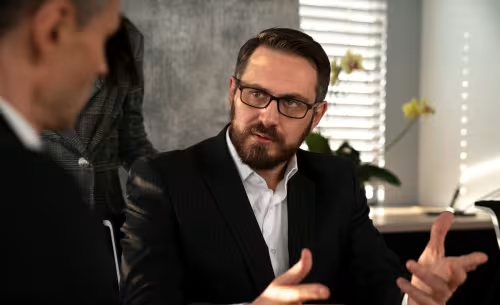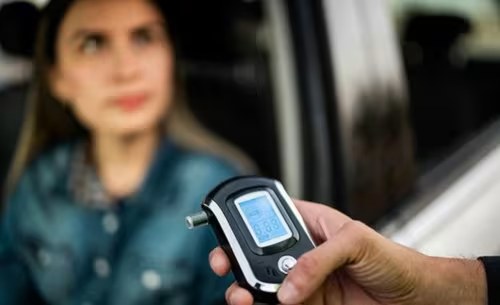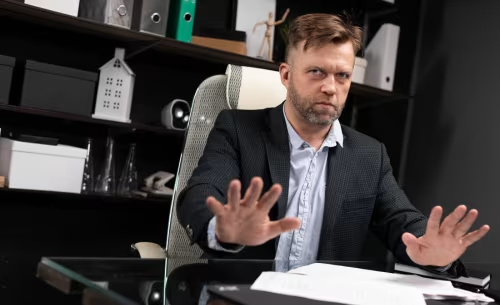Disclaimer: This guest post was written by a third party and is for informational purposes only. It does not constitute legal advice or create an attorney-client relationship with The Meehan Law Firm. For legal advice, please contact our office.


In California, a DUI Arrest Triggers Two Separate Proceedings
In California, a DUI arrest triggers two separate proceedings: a criminal court case and a DMV administrative per se (APS) hearing. The DMV hearing is an administrative process conducted by a DMV Hearing Officer to determine whether the driver’s privileges should be suspended or revoked.
The challenge? The Hearing Officer acts as both the advocate (prosecutor) and the finder of fact (judge). This dual role often tips the scales against drivers, resulting in a high rate of license suspensions.
Why Most Drivers Lose at DMV Hearings
Many drivers underestimate the DMV hearing process, mistakenly believing it to be informal or less serious than a criminal trial. However, the stakes are very real. A license suspension can affect employment, family obligations, and overall quality of life. Several key factors contribute to the high loss rate:
- Evidence standard: The DMV operates under a "preponderance of the evidence" standard, which is lower than the "beyond a reasonable doubt" requirement in criminal courts. This makes it easier for the DMV to justify suspending a license.
- Bias and procedure: DMV Hearing Officers both introduce the evidence (such as police reports and chemical test results) and decide on its admissibility and weight. This lack of neutrality puts drivers at a disadvantage.
- Failure to prepare: Many drivers walk into a hearing without understanding the process. They often fail to subpoena critical witnesses, challenge evidence properly, or raise key defenses.
- Missed deadlines: A DMV hearing must be requested within 10 days of the arrest. Missing this deadline leads to an automatic suspension without a hearing.
Chances of Winning Without Legal Representation
While it is technically possible to win a DMV hearing without an attorney, the odds are slim. Statistically, unrepresented drivers rarely succeed.
The DMV process is filled with legal and technical nuances, from chain-of-custody issues with chemical tests to officer procedural errors during the arrest. Without knowledge of California Vehicle Code sections 13353 and 13558, drivers are at a severe disadvantage.
Most individuals do not know how to:
- Properly object to evidence
- Issue subpoenas
- Cross-examine arresting officers
Since the DMV often relies heavily on documents alone to make its case, admissibility becomes a foundational issue—something an attorney is trained to challenge.
How to Increase the Odds of Winning a DMV Hearing
Winning a DMV hearing requires more than showing up and telling your side of the story. It takes preparation and strategy:
1. Understand the Key Issues
The DMV hearing typically focuses on three questions:
- Was the driver lawfully stopped for suspicion of DUI?
- Was the driver lawfully arrested?
- Was the driver’s BAC 0.08% or higher (for adults) at the time of driving?
If the case involves a refusal to submit to testing, the DMV must also prove:
- The driver was advised of their obligation to submit to a chemical test
- The driver refused or failed to complete the test
2. Gather and Challenge Evidence
The DMV relies on police reports, breathalyzer maintenance logs, and chemical test results. Drivers have the right to subpoena these documents and the individuals responsible for them. If the evidence is incomplete, inconsistent, or improperly admitted, it can be grounds for dismissal.
Successful challenges often involve:
- Errors in breath or blood testing protocols
- Failure to properly advise the driver of refusal consequences
- Lack of probable cause for the stop
- Driver was not actually impaired at the time of driving
- Driver was not driving at all
3. Cross-Examine the Arresting Officer
Subpoenaing the officer allows the driver (or their attorney) to question inconsistencies in the officer’s report or actions. Effective cross-examination can expose procedural flaws that weaken the DMV’s case.
4. Don’t Miss Deadlines
The DMV hearing must be requested within 10 calendar days of arrest. Missing this deadline forfeits the right to contest suspension.
Do Drivers Need a DUI Attorney to Win a DMV Hearing?
While drivers technically have the right to represent themselves, even President Lincoln once said:
“Anyone who represents themselves has a fool for a client.”
Hiring a DUI attorney dramatically improves the odds of success. An experienced lawyer can:
- Subpoena critical evidence and witnesses
- Analyze chemical test reliability
- Identify procedural violations by law enforcement
- Object to improper evidence or documents
- Make persuasive arguments to the hearing officer
An attorney can also negotiate with the DMV in advance, sometimes securing a favorable resolution without a full hearing.
In short: a skilled DUI attorney can turn an almost unwinnable case into a winnable one.
Drivers Lose Because They Are Unprepared
The DMV hearing is not a mere formality - it is a crucial proceeding that can determine whether you keep your license. Most drivers lose because they are unprepared or unfamiliar with their rights and the standards applied at the APS hearing.
To stand a fighting chance, drivers must:
- Understand the key legal issues
- Challenge the DMV’s evidence methodically
- Be ready to subpoena and cross-examine witnesses
- Seek legal representation when possible
At The Meehan Law Firm, we believe in early intervention. Preparing thoroughly and consulting an experienced DUI attorney offers the best chance of preserving driving privileges after a California DUI arrest. In fact, The Meehan Law Firm’s success rate is nearly double the state average for DMV Administrative Per Se hearings.
(844) 4-DUI STOP
Categories
Need Help?
Free Consultation, discreet, and no obligation- talk to an attorney.
More Blogs

How Can You Defend Someone Who Is Guilty?
Defense attorneys protect constitutional rights, ensure due process...
Read More..
Why a Second DUI Might Be Your Wake-Up Call
Facing a Second DUI in California: Why It Should Be Your Wake-Up Call..
Read More..
How To Spot a Bad DUI Lawyer in 10 Minutes or Less
Choosing the Right DUI Lawyer in California: Spotting Red Flags Early...
Read More..



